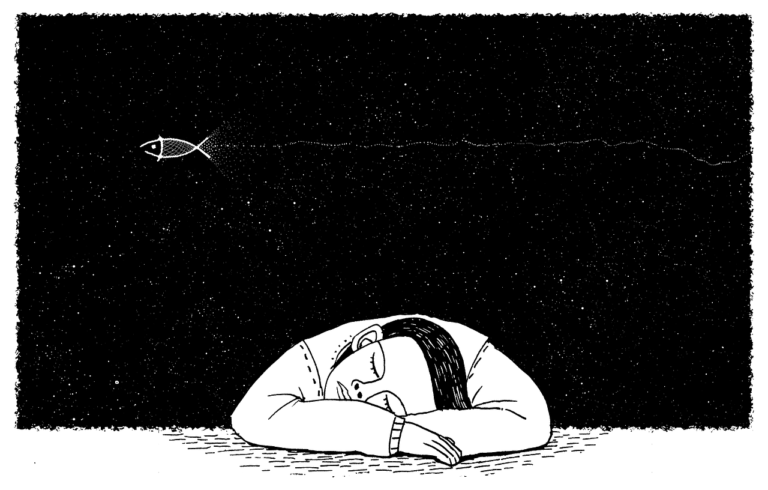Understanding the Causes of Sleep Paralysis

Imagine waking up in the middle of the night, unable to move or speak, with a heavy weight on your chest. Your heart races, and you feel an overwhelming sense of fear and panic. This is the terrifying experience of sleep paralysis. At Vector Sleep Clinic, we understand the distress caused by this phenomenon and aim to shed light on its causes. In today’s fast-paced world, sleep disorders have become all too common, disrupting our health and productivity. If left untreated, they can lead to serious health issues such as heart attacks, strokes, and high blood pressure. That is why completing a sleep study is crucial. Our licensed and insured clinic offers comprehensive care for restful sleep, aiming to unlock the magic of rejuvenating dreams where dreams meet rejuvenation. Join us as we delve into understanding the causes of sleep paralysis and find solutions for better sleep.
Overview of Sleep Paralysis
Sleep paralysis is a phenomenon that occurs during sleep when you are temporarily unable to move or speak. It is often accompanied by vivid hallucinations and a feeling of intense pressure on the chest. This article will provide an overview of sleep paralysis, including its definition, historical context, prevalence, and demographics affected.
Definition of Sleep Paralysis
Sleep paralysis is a condition in which you experience a temporary inability to move or speak while falling asleep or waking up. It is thought to occur when your brain and body are not properly synchronized during the transition between sleep stages. Despite being awake, your muscles remain temporarily paralyzed, leaving you unable to move or speak.
Historical Context and Cultural Perceptions
Sleep paralysis has been documented throughout history and across various cultures. In many societies, it has been attributed to supernatural beings, such as demons or nocturnal witches. These cultural perceptions often depict sleep paralysis as a terrifying and paranormal experience.
Prevalence and Demographics Affected
Sleep paralysis is relatively common, affecting about 8% of the general population. It can occur at any age, although it is more common in adolescents and young adults. Sleep paralysis is also more prevalent in individuals with certain psychiatric conditions, such as anxiety disorders and post-traumatic stress disorder (PTSD).
Symptoms of Sleep Paralysis
Sleep paralysis is characterized by several distinct symptoms that occur during episodes. These symptoms can vary in intensity and duration from person to person.
Hallucinations During Episodes
One of the most notable symptoms of sleep paralysis is the presence of vivid hallucinations. These hallucinations can take various forms, ranging from harmless to terrifying. Some individuals report seeing shadowy figures or experiencing a sense of dread during sleep paralysis episodes.
Inability to Move or Speak
The primary symptom of sleep paralysis is the temporary inability to move or speak. Despite being fully conscious, your voluntary muscles are momentarily paralyzed, making it impossible to perform even the simplest movements or utter a single word.
Feelings of Chest Pressure
During sleep paralysis episodes, many individuals report feeling a heavy pressure on their chest. This sensation can be distressing and contribute to the overall sense of unease and fear associated with sleep paralysis.
Sensation of Choking or Suffocation
Another common symptom of sleep paralysis is the perception of being choked or suffocated. This feeling can be extremely distressing and may contribute to a sense of panic during episodes.
Duration and Frequency of Episodes
The duration and frequency of sleep paralysis episodes can vary from person to person. Some individuals may experience only occasional episodes that last a few seconds, while others may have frequent episodes that last for several minutes. The frequency and duration of episodes may also change over time.
Scientific Explanation of Sleep Paralysis
While sleep paralysis can be a frightening experience, it has a scientific explanation rooted in the workings of the sleep cycle and the brain.
The Role of REM Sleep
Sleep paralysis is closely linked to rapid eye movement (REM) sleep, which is a stage of sleep associated with vivid dreaming. During REM sleep, your brain suppresses the signals that allow voluntary muscle movement to prevent you from acting out your dreams. In sleep paralysis, this suppression continues even when you are awake, causing temporary paralysis.
Disruption in Sleep Cycles
Sleep paralysis often occurs when there is a disruption in the normal progression of sleep cycles. This can happen due to irregular sleep patterns, such as jet lag or shift work, or as a result of sleep disorders like insomnia or sleep apnea.
Brain Mechanisms Involved
The exact mechanisms in the brain that contribute to sleep paralysis are still not fully understood. However, research suggests that abnormalities in the neurotransmitters and receptors involved in regulating sleep and wakefulness may play a role.
Genetic Factors
There is evidence to suggest that genetics may also contribute to the development of sleep paralysis. Certain genetic variations have been associated with an increased susceptibility to experiencing sleep paralysis.
Psychological Factors
While sleep paralysis has physiological roots, psychological factors can also contribute to its occurrence and severity.
Stress and Anxiety
Stress and anxiety can disrupt your sleep patterns and increase the likelihood of experiencing sleep paralysis. When you are under stress, your brain may have difficulty transitioning between sleep stages, increasing the chances of experiencing sleep paralysis episodes.
Post-Traumatic Stress Disorder (PTSD)
Individuals with PTSD are more likely to experience sleep disturbances, including sleep paralysis. The trauma and associated anxiety experienced in PTSD can contribute to the occurrence and severity of sleep paralysis episodes.
Panic Disorder
Panic disorder, characterized by recurring panic attacks, has also been linked to sleep paralysis. The intense fear and anxiety experienced during panic attacks can disrupt sleep and increase the likelihood of experiencing sleep paralysis.
Lifestyle and Environmental Stressors
Various lifestyle and environmental factors can increase the risk of sleep paralysis. These include high levels of job-related stress, living in noisy or disruptive environments, and engaging in poor sleep habits, such as irregular sleep schedules and inadequate sleep hygiene.
Physiological & Health-Related Causes
In addition to psychological factors, certain physiological and health-related causes can contribute to the occurrence of sleep paralysis.
Sleep Deprivation
Sleep deprivation, whether chronic or acute, can disrupt the normal sleep cycle and increase the likelihood of experiencing sleep paralysis. Inadequate sleep can lead to an imbalance in the neurotransmitters and hormones that regulate sleep, contributing to episodes of sleep paralysis.
Irregular Sleep Schedules
Having irregular sleep schedules, such as frequently changing work shifts or inconsistent sleep times, can disrupt the natural sleep-wake rhythm and increase the chances of experiencing sleep paralysis.
Substance Abuse
The use of substances such as alcohol, narcotics, or certain medications can disrupt sleep patterns and increase the likelihood of sleep paralysis episodes. These substances can interfere with the normal functioning of the brain and disturb the sleep cycle.
Obstructive Sleep Apnea
Obstructive sleep apnea, a sleep disorder characterized by interrupted breathing during sleep, can contribute to the occurrence of sleep paralysis. The interruptions in breathing can disrupt the sleep cycle and increase the chances of experiencing sleep paralysis episodes.
Restless Leg Syndrome (RLS)
Restless Leg Syndrome (RLS), a condition characterized by an irresistible urge to move the legs, can disrupt sleep and increase the likelihood of experiencing sleep paralysis. The discomfort caused by RLS can disrupt the normal sleep cycle and increase the risk of sleep paralysis.
Impact of Medications and Substances
Certain medications and substances can have an impact on sleep paralysis.
Antidepressants
Some antidepressant medications, particularly those that affect serotonin levels, have been associated with an increased risk of experiencing sleep paralysis. These medications can affect the neurotransmitters involved in regulating sleep and wakefulness, contributing to sleep paralysis episodes.
Stimulants
The use of stimulant medications, such as those prescribed for attention-deficit/hyperactivity disorder (ADHD), can disrupt sleep patterns and increase the likelihood of experiencing sleep paralysis. Stimulants can interfere with the normal sleep-wake cycle, making sleep paralysis more likely.
Withdrawal from Medication
Abruptly stopping certain medications or experiencing withdrawal symptoms can disrupt the sleep cycle and increase the chances of sleep paralysis. This can occur with various medications, including antidepressants and sleep aids.
Use of Narcotics and Alcohol
The use of narcotics and alcohol can disrupt the normal sleep cycle and increase the chances of experiencing sleep paralysis. These substances can depress the central nervous system, leading to increased episodes of sleep paralysis.
Genetic and Hereditary Factors
Genetics and hereditary factors may play a role in the occurrence of sleep paralysis.
Family History of Sleep Paralysis
Having a family history of sleep paralysis can increase your likelihood of experiencing the condition. Researchers believe that certain genetic factors may contribute to the development of sleep paralysis.
Genetic Predispositions
Certain genetic variations have been associated with an increased susceptibility to sleep disorders, including sleep paralysis. These variations can affect the functioning of neurotransmitters and receptors involved in regulating sleep.
Hereditary Sleep Disorders
Some individuals may have a genetic predisposition to sleep disorders, including sleep paralysis. These individuals may be more prone to experiencing disruptions in the sleep cycle and experiencing sleep paralysis episodes.
Lifestyle and Environmental Factors
Several lifestyle and environmental factors can influence the occurrence of sleep paralysis.
Sleep Environment and Comfort
Creating a comfortable sleep environment can help reduce the likelihood of experiencing sleep paralysis. Ensuring a quiet, dark, and comfortable room with a supportive mattress and pillow can promote restful sleep and minimize sleep disturbances.
Electronic Device Usage Before Sleep
Using electronic devices such as smartphones, tablets, or computers before bed can disrupt your sleep patterns and increase the chances of experiencing sleep paralysis. The blue light emitted by these devices can interfere with the production of melatonin, a hormone that helps regulate sleep.
Diet and Exercise
Maintaining a healthy diet and engaging in regular exercise can contribute to better sleep quality and reduce the risk of sleep paralysis. Eating a balanced diet and avoiding heavy meals close to bedtime can promote restful sleep. Regular exercise can also help regulate your sleep-wake cycle and improve overall sleep quality.
Work and School Schedules
Work and school schedules that do not allow for adequate sleep can increase the likelihood of experiencing sleep paralysis. It is important to prioritize sleep and establish regular sleep schedules to minimize the risk of sleep disturbances.
Preventing Sleep Paralysis
While it may not be possible to completely prevent sleep paralysis, there are several strategies that can help reduce the frequency and severity of episodes.
Improving Sleep Hygiene
Practicing good sleep hygiene can promote better sleep quality and reduce the occurrence of sleep paralysis. This includes maintaining a consistent sleep schedule, creating a relaxing sleep environment, and establishing a bedtime routine that allows for relaxation and winding down before sleep.
Stress Management Techniques
Managing stress and anxiety can help minimize sleep paralysis episodes. Engaging in relaxation techniques, such as deep breathing exercises or meditation, can help reduce stress levels and promote better sleep.
Regular Sleep Schedule
Establishing a regular sleep schedule, including consistent bedtimes and wake times, can help regulate your sleep-wake cycle and reduce the occurrence of sleep paralysis. It is important to prioritize getting enough sleep each night.
Limiting Substance Use
Avoiding the use of substances such as alcohol, narcotics, and certain medications before bed can help minimize the risk of sleep paralysis. These substances can disrupt the sleep cycle and increase the likelihood of experiencing sleep paralysis episodes.
Seeking Professional Help for Underlying Conditions
If sleep paralysis is interfering with your daily life or causing significant distress, it is important to seek professional help. A healthcare provider or sleep specialist can help diagnose and treat any underlying sleep disorders or psychological conditions that may be contributing to sleep paralysis.
Conclusion
Sleep paralysis is a unique and often unsettling phenomenon that can occur during sleep. While it can be a distressing experience, understanding the causes and factors that contribute to sleep paralysis can help individuals manage and reduce the occurrence of episodes. By prioritizing good sleep hygiene, managing stress, and seeking professional help when needed, individuals can improve their sleep quality and overall well-being.






